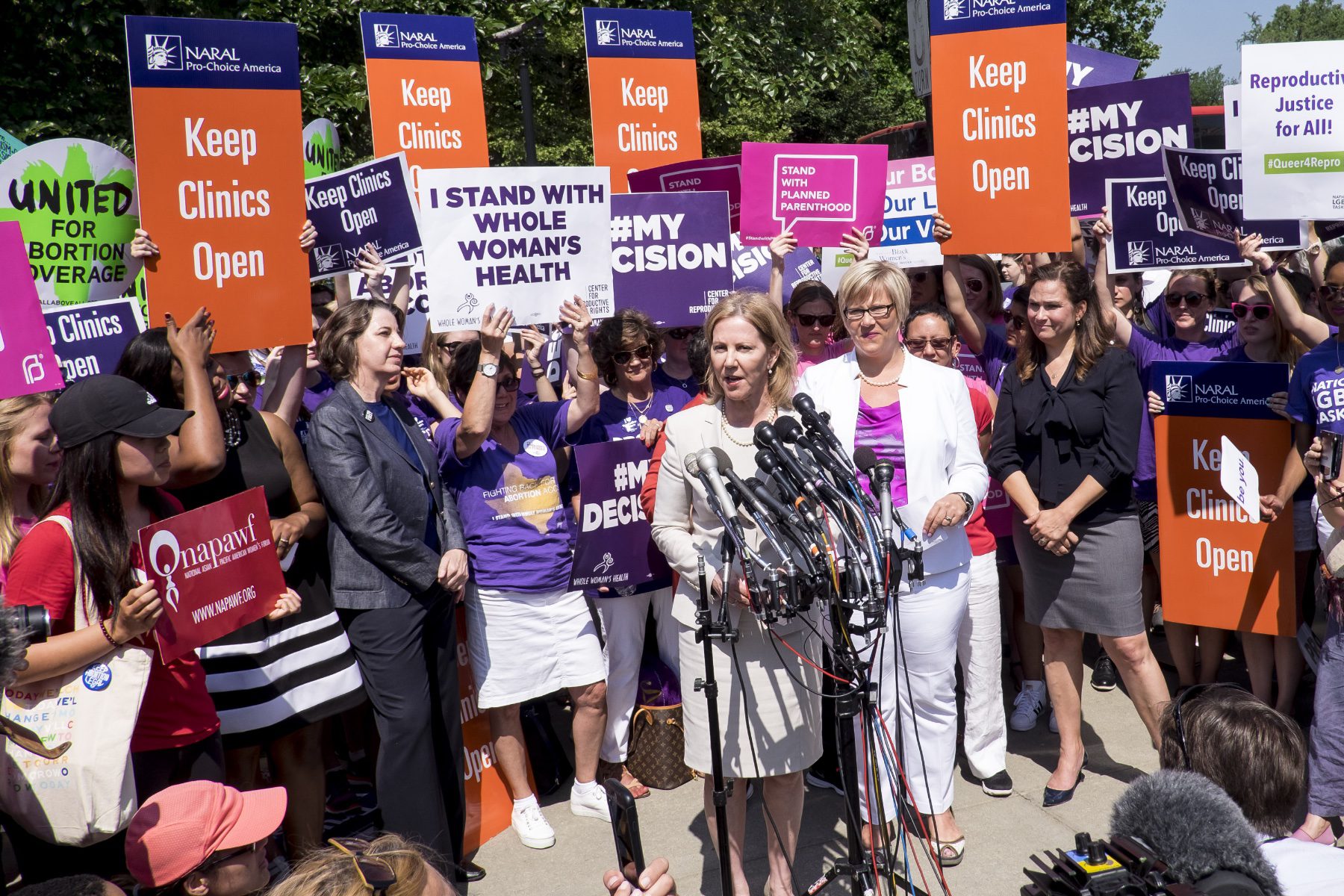Editor’s note: This story has been updated throughout.
A Texas law banning abortions after six weeks of pregnancy is set to take effect September 1, unless the U.S. Supreme Court intervenes.
A Monday hearing before the 5th Circuit Court of Appeals that abortion rights advocates hoped would block the measure was canceled without explanation. Attorneys for Texas abortion providers have asked the U.S. Supreme Court, with its 6-3 conservative majority, to block the law.
The law, Senate Bill 8, would serve as an effective abortion ban in the state; many people don’t even realize they’re pregnant at the six-week mark. In 2018, the most recent year for which there is federal data, about two-thirds of abortions nationwide took place after six weeks of pregnancy.
And the Texas law would do more than just criminalize abortion: The ban would allow private citizens to sue anyone who they believe helped someone get an abortion after six weeks. If those lawsuits resulted in a guilty verdict, the plaintiff would be awarded at least $10,000, plus any legal fees incurred.
The text of the law doesn’t make immediately clear who could be held liable.
Some experts say that’s not a coincidence.
“Anyone — the barista at Starbucks or some other concerned individual — could sue anyone who assists a pregnant woman in terminating her pregnancy. That could be the physician who performs the procedure, the clinic staff person who checks her in, the Uber driver who might drive her to the facility,” Melissa Murray, a reproductive law expert and professor at New York University, previously told The 19th. “It’s all quite confusing. And I think that is the point.”
Texas Right to Life, an anti-abortion group in the state, has already set up a website where people can anonymously report those suspected of helping someone get an abortion.
The law, which Texas Gov. Greg Abbott signed in May, was challenged by Texas-based organizations including reproductive health care provider Whole Woman’s Health, local Planned Parenthood affiliates and the Austin Women’s Health Center. On Saturday, those groups filed emergency motions with the federal appeals court. Those were denied Sunday. The latest emergency motion is headed to the Supreme Court.
The six-week ban appears to violate the national abortion protections conferred in Roe v. Wade, a 1973 Supreme Court case that guaranteed the right to an abortion up until a fetus can live independently, which typically happens around 23 weeks.
But those protections may soon disappear. This fall, the Supreme Court will hear arguments in Dobbs v. Jackson Women’s Health, a case challenging a Mississippi law that bans abortion at 15 weeks of pregnancy. Upholding that Mississippi law would run in direct opposition to Roe v. Wade.
The high court is widely expected to issue a ruling that either scales back or eliminates the Roe v. Wade protection. That could create a legal precedent that allows the Texas restriction to stand.
Disclosure: The Planned Parenthood Federation of America has been a corporate sponsor of The 19th.






